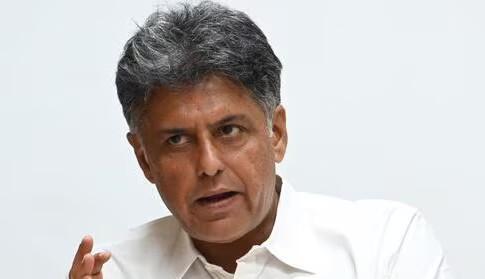
Against Constitution: Tewari on bills to remove jailed PM, CMs
In a move that has sent shockwaves across the political landscape, Union Minister Amit Shah has presented three bills in Parliament that aim to remove Prime Ministers, Chief Ministers, and Ministers facing serious criminal charges. The bills, which have been met with widespread criticism, have been dubbed as a threat to the very foundation of the Indian Constitution.
Congress MP Manish Tewari, who has been a vocal critic of the bills, has described them as “against the basic structure of the Constitution.” In an interview, Tewari emphasized that the Indian Constitution is based on the principle of “innocent until proven guilty,” which means that a person is presumed innocent until they are proven guilty by a court of law.
Tewari points out that the bills, if passed, would allow the government to remove a PM, CM, or Minister from office without affording them the opportunity to prove their innocence. This, he argues, would be a gross violation of the Constitution and would set a dangerous precedent.
Furthermore, Tewari highlights the immense potential for misuse of state instrumentalities under these bills. He notes that the government could use these bills to remove political opponents and silence critics, rather than following due process and upholding the law.
The bills, which have been introduced in the Lok Sabha, seek to amend the Constitution to allow for the removal of PM, CM, and Ministers facing serious criminal charges. According to the bills, a PM, CM, or Minister would be deemed guilty of corruption and would be removed from office if they are detained in a jail or are under investigation for corruption.
Tewari has raised several concerns about the bills, including the lack of clear definitions of what constitutes a “serious” criminal charge. He points out that the bills do not define what constitutes a “serious” charge, which means that the government could use its discretion to label any charge as “serious” and remove a PM, CM, or Minister from office.
Another concern raised by Tewari is the absence of a mechanism to review the decision to remove a PM, CM, or Minister. He points out that the bills do not provide for any mechanism to review the decision, which means that once a person is removed from office, they would be unable to challenge the decision.
Tewari’s concerns have been echoed by several other opposition parties, including the Congress, TMC, and CPI(M). The parties have slammed the bills as an attempt to undermine democratic norms and institutions, and have demanded their repeal.
The bills have also been criticized by several legal luminaries, including former Supreme Court judges. Former Supreme Court judge, Justice Kuldip Singh, has described the bills as “unconstitutional,” saying that they would be a blow to the rule of law and democratic norms.
In response to the criticism, the government has claimed that the bills are necessary to protect the country from corruption and ensure accountability among public functionaries. However, Tewari and other critics argue that the bills are a thinly-veiled attempt to silence political opponents and undermine democratic institutions.
As the debate over the bills continues, it is clear that the future of democracy in India is under threat. The bills, if passed, would be a major blow to the Constitution and would undermine the very fabric of our democratic system.
In conclusion, the bills proposed by the government to remove PM, CM, and Ministers facing serious criminal charges are a threat to the Constitution and to democratic norms. The potential for misuse of state instrumentalities under these bills is enormous, and it is imperative that we reject these bills and uphold the Constitution.






